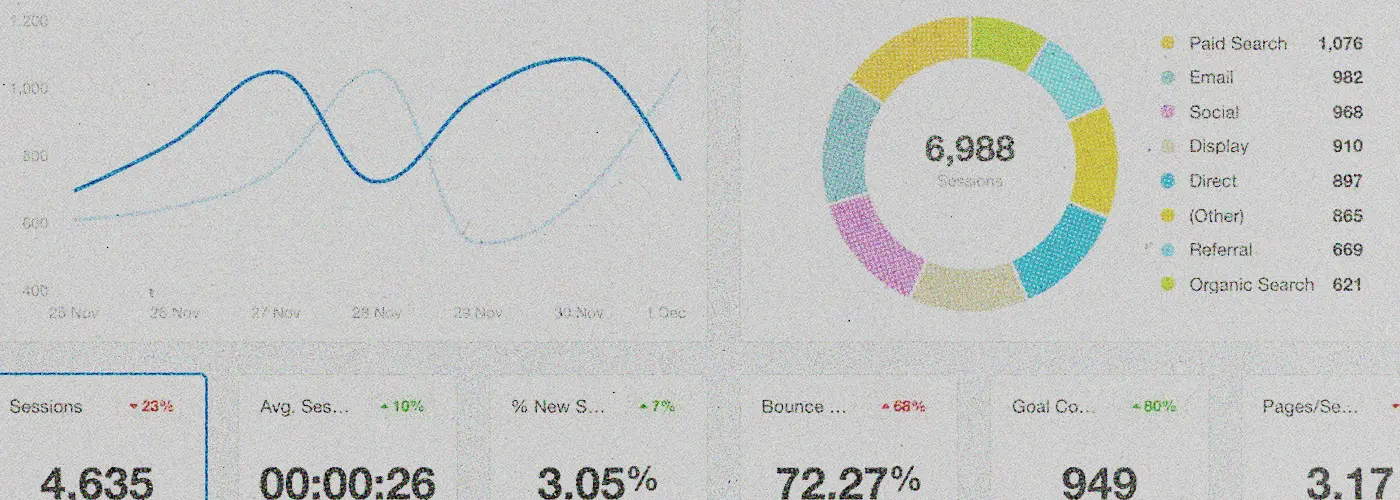In the fast-paced world of digital marketing, staying ahead of the curve is crucial for success. One tool that has become indispensable for marketers seeking to make informed decisions is Google Analytics. In this comprehensive guide, we’ll delve into the intricacies of Google Analytics, exploring its features, functionalities, and how you can leverage this powerful tool to drive data-driven decisions for your digital marketing campaigns.
I. Introduction to Google Analytics
Google Analytics is a robust web analytics service provided by Google that tracks and reports website traffic. It offers a plethora of insights into user behavior, helping businesses understand how visitors interact with their websites. From the number of visitors and page views to user demographics and conversion rates, Google Analytics provides a treasure trove of data that can shape your marketing strategy.
II. Setting Up Google Analytics
Before you can start reaping the benefits of Google Analytics, you need to set up your account and install the tracking code on your website. This involves creating a Google Analytics account, obtaining a tracking code, and integrating it into your website. We’ll guide you through this process step by step, ensuring that you’re ready to start collecting valuable data.
III. Navigating the Google Analytics Dashboard
Once your account is set up, the Google Analytics dashboard becomes your command center. We’ll walk you through the various sections of the dashboard, explaining key metrics and their significance. From audience demographics to real-time traffic data, understanding the dashboard is crucial for extracting actionable insights.
IV. Key Metrics and Dimensions
Google Analytics provides a plethora of metrics and dimensions, each offering a unique perspective on user behavior. We’ll break down essential metrics such as sessions, pageviews, bounce rate, and conversion rate, explaining how each contributes to the overall understanding of your website’s performance. Additionally, we’ll explore dimensions like traffic sources, user location, and device categories, offering a comprehensive view of user interactions.
V. Advanced Features and Customization
To truly harness the power of Google Analytics, you need to go beyond the basics. We’ll explore advanced features such as event tracking, custom dimensions, and goals, allowing you to tailor the tool to your specific business objectives. Understanding how to set up custom reports and dashboards will further enhance your ability to extract actionable insights.
VI. E-Commerce Tracking with Google Analytics
For businesses engaged in online commerce, e-commerce tracking is a game-changer. We’ll delve into the intricacies of setting up e-commerce tracking on Google Analytics, enabling you to monitor crucial metrics like revenue, average order value, and conversion rate. This section will provide valuable insights into your online sales funnel, allowing you to optimize each step for maximum profitability.
VII. Attribution Modeling
Attribution modeling is a key component of understanding the customer journey. We’ll explore different attribution models, such as first-touch, last-touch, and multi-touch attribution, helping you determine the most effective channels and touchpoints in your conversion funnel. This knowledge is essential for optimizing your marketing budget and focusing on strategies that deliver the highest ROI.
VIII. Leveraging Google Analytics for Content Marketing
Content is king in the digital marketing realm, and Google Analytics can be a potent ally in your content marketing strategy. We’ll guide you through using Google Analytics to measure the performance of your content, identify top-performing pages, and understand user engagement. This information will empower you to create content that resonates with your audience and drives meaningful interactions.
IX. A/B Testing and Conversion Rate Optimization
Google Analytics provides the tools you need to conduct A/B testing and optimize your website for higher conversion rates. We’ll explore the A/B testing process, from setting up experiments to analyzing results. Additionally, we’ll discuss strategies for improving conversion rates based on the insights gained from Google Analytics data.
X. Mobile Analytics
With the increasing prevalence of mobile devices, understanding how users interact with your website on different devices is crucial. We’ll delve into mobile analytics on Google Analytics, providing insights into mobile user behavior, device types, and opportunities for optimization. This knowledge will help you create a seamless user experience across various platforms.
XI. Google Analytics and Social Media Integration
Social media plays a significant role in digital marketing, and integrating social media data with Google Analytics provides a comprehensive view of your online presence. We’ll guide you through the process of linking social media accounts to Google Analytics, tracking social media referrals, and measuring the impact of social media campaigns on website traffic and conversions.
XII. Data Privacy and Compliance
As data privacy concerns continue to gain prominence, it’s crucial for marketers to navigate Google Analytics in compliance with privacy regulations. We’ll explore the importance of user consent, data anonymization, and other measures to ensure that your use of Google Analytics aligns with privacy best practices.
XIII. Troubleshooting and Common Challenges
No tool is without its challenges, and Google Analytics is no exception. We’ll address common issues and challenges that users may encounter, offering solutions and troubleshooting tips to ensure a smooth analytics experience.
XIV. Future Trends in Google Analytics
The digital landscape is ever-evolving, and so is Google Analytics. We’ll explore emerging trends and features on the horizon, keeping you informed about the latest developments in web analytics. Staying ahead of the curve will position your digital marketing efforts for continued success.
XV. Conclusion: Empowering Your Digital Marketing Strategy with Google Analytics
In conclusion, Google Analytics is a powerful ally in the digital marketer’s toolkit, providing invaluable insights into user behavior and website performance. By mastering the intricacies of Google Analytics, you can make data-driven decisions, optimize your marketing efforts, and stay ahead of the competition. As technology advances and consumer behavior evolves, the ability to harness the full potential of Google Analytics will be a key differentiator for successful digital marketing campaigns. So, let’s crack the code and unlock the full potential of Google Analytics for a data-driven future in digital marketing.
